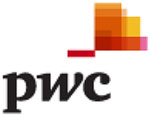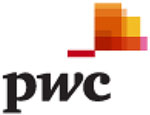Logistics sector 2030: Africa and Asia to reshuffle the cards?

"Both global trade hubs and routes will shift to emerging markets within the next 20 years," says Akhter Moosa, South African Transport and Logistics Leader for PwC, which recently published its third Transportation & Logistics 2030 Report. "Trade volumes will move towards emerging markets such as Africa or Asia and competition for future large transport contracts will be determined within the next few years.
"Nearly 100 industry experts from all over the world participated in the survey, which covered seven specific emerging markets: Brazil, China, India, Mexico, Russia, South Africa and Turkey," continues Moosa.
As the importance of emerging markets increases, a major proportion of global trade will be carried out through these emerging markets by 2030. New trade corridors between Asia and Africa, Asia and South America, including trade within Asia, will re-chart global supply chains.
Privatisation has already bolstered China's economic growth and countries like Turkey are looking to benefit from increased efficiency and better access to capital.
Massive growth in trade
Trade between Asia and the former Soviet states is growing 42% annually. Trading volumes on the South-South route between South America and Africa is also showing considerable double digit growth.
Christopher Siewierski, associate director in Corporate Finance, PwC, adds, "China already owns seven of the world's twenty largest ports. India, Russia and South Africa are also expected to play a significant role as logistics giants."
South Africa will become the starting point of a new transport corridor to Asia. Significant investments in transport infrastructure and the logistics industry in Africa are required to develop new transport routes and expand existing ones.
This development will relocate global trade flows and new transport corridors will emerge. The African continent, including South Africa, is already experiencing this shift.
Emerging markets such as China and South Africa fared relatively well during the recent economic downturn. As a result, freight flows between these emerging market countries continue to strengthen.
Asia's heavy industry will continue to play a pivotal role in the global demand for iron ore and coal. South Africa is expected to remain an important source of these commodities, especially in light of weakening demand from Europe.
Substantial investment in multi-modal corridors
Siewierski says, "The emergence of China as one of South Africa's main trading partners will continue to have a tremendous impact on the economic feasibility of certain hub and spoke initiatives. The demand for South African resources will result in substantial investment being made in multi-modal corridors to satisfy the hunger of Chinese heavy industry."
South African logistics companies are not only competing with each other, but also with their clients. Fierce competition is expected to continue between logistics service providers which will put downward pressure on margins.
Simultaneously, increased competition will also lead to a wave of industry consolidation and the number of logistics providers is expected to fall sharply. PwC analysis shows that 69% of companies that have been taken over during the second quarter of 2010 were located in Asia and Oceania.
Emerging markets provide outstanding opportunities for logistics providers in terms of overall growth and in response to rapidly changing market trends. Medium-sized companies are also capitalising on this change for further growth.
Respondents to the Transportation & Logistics 2030 Report believe it is unlikely that companies from emerging countries will seek further growth in the developed European and North American markets. Instead, they will concentrate on domestic markets and the strong growing neighbouring countries.
Source: PricewaterhouseCoopers

PwC firms provide industry-focused assurance, tax and advisory services to enhance value for their clients. More than 161 000 people in 154 countries in firms across the PwC network share their thinking, experience and solutions to develop fresh perspectives and practical advice.
Go to: http://www.pwc.com






